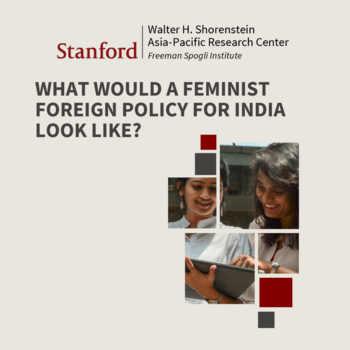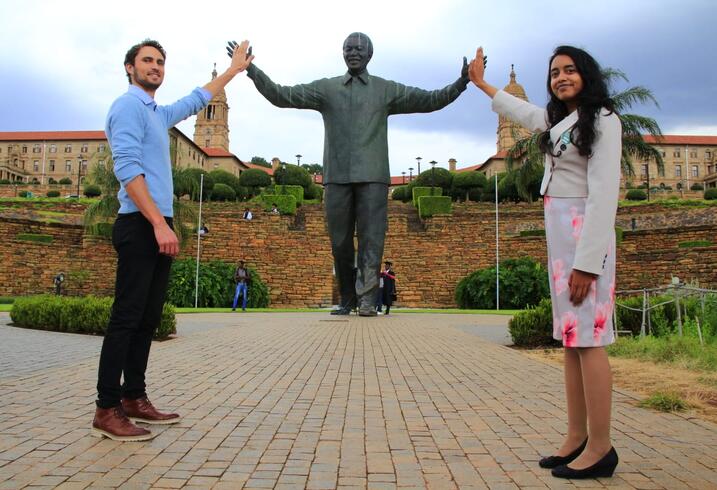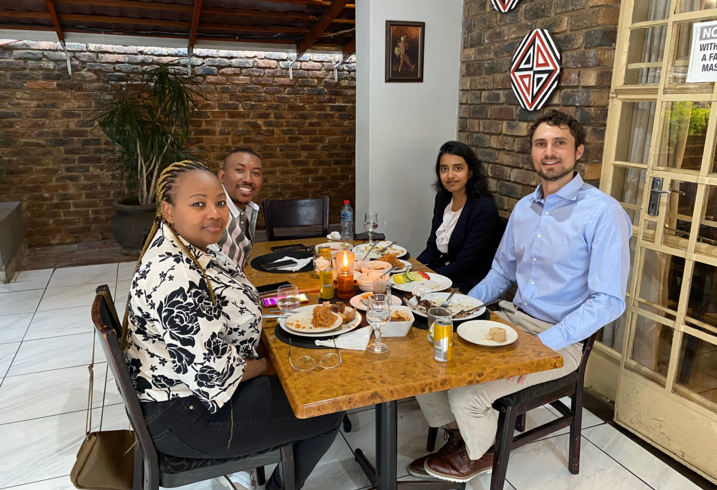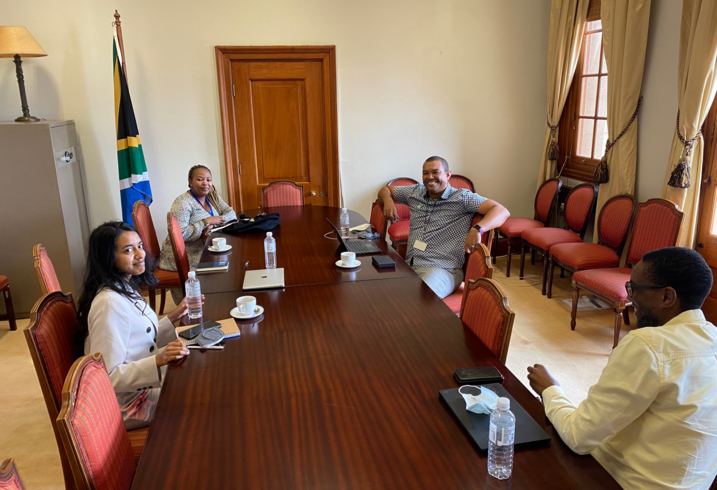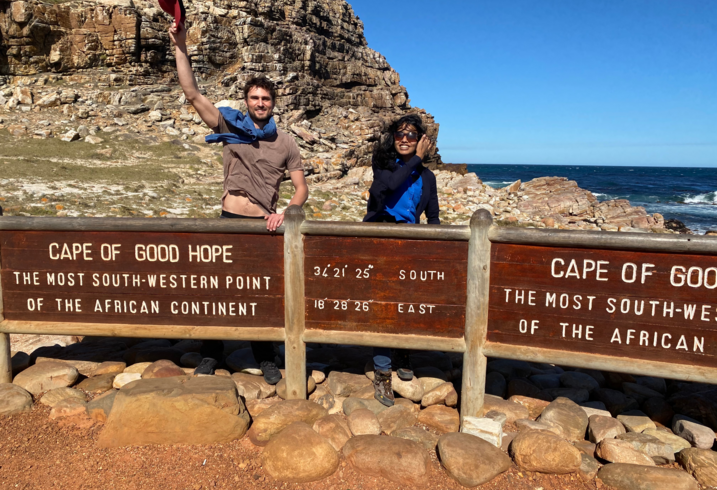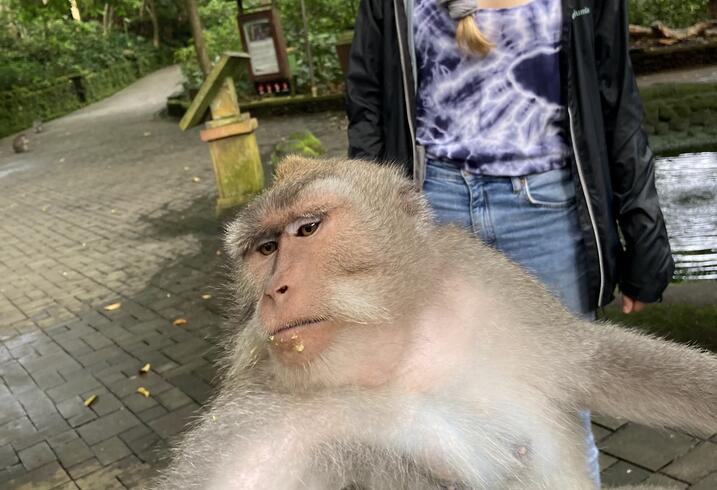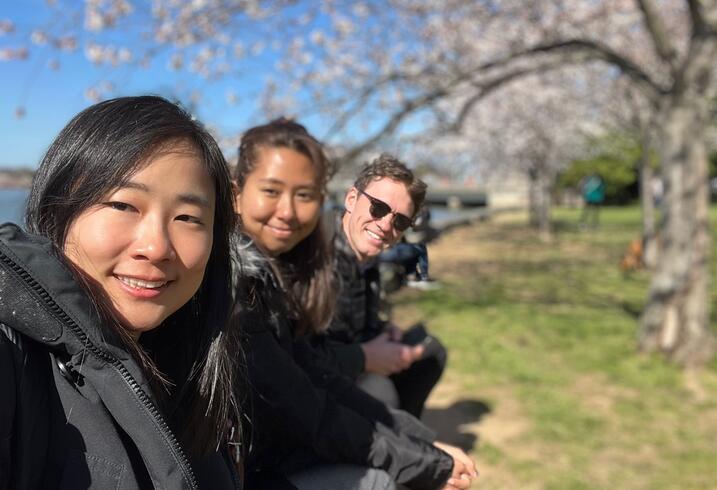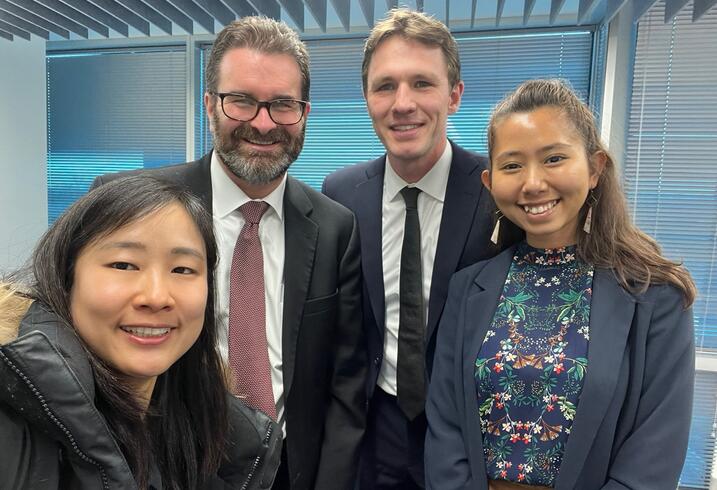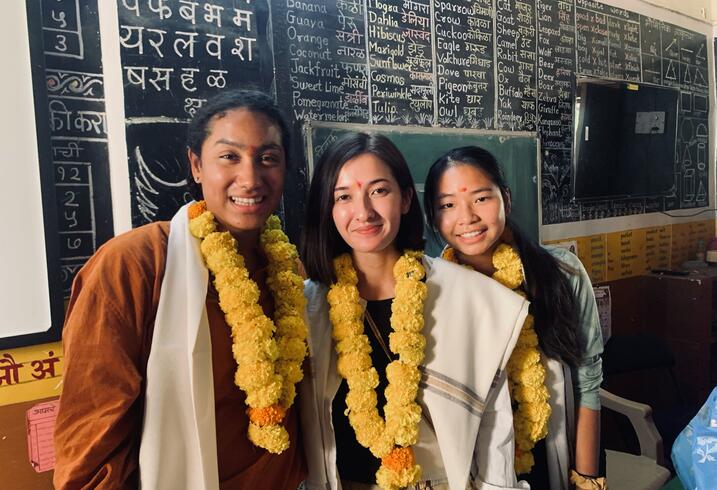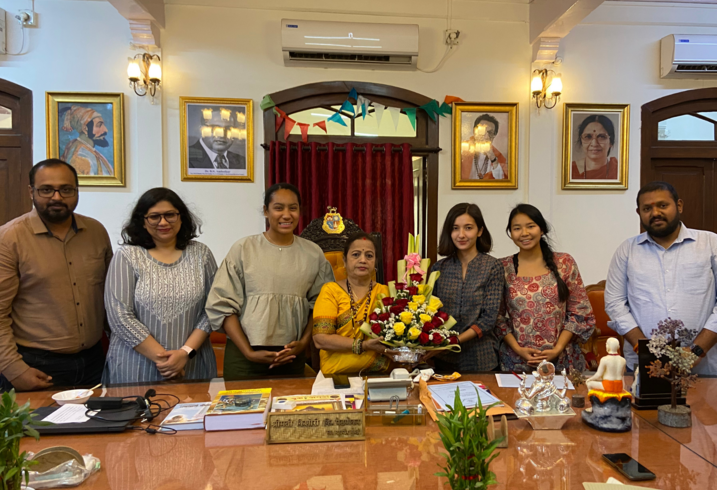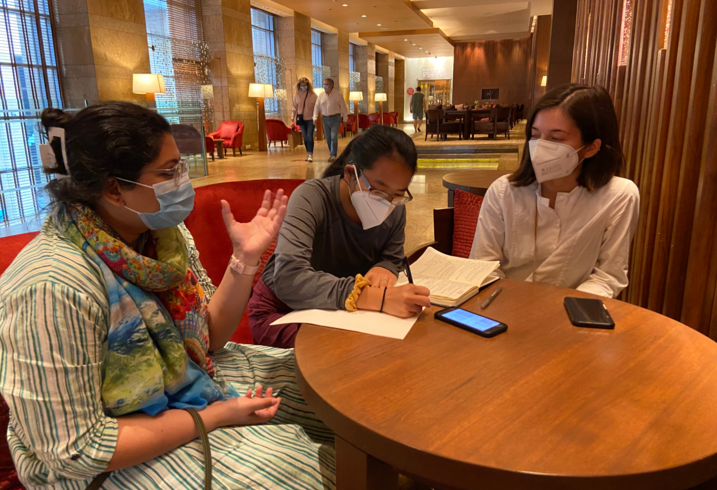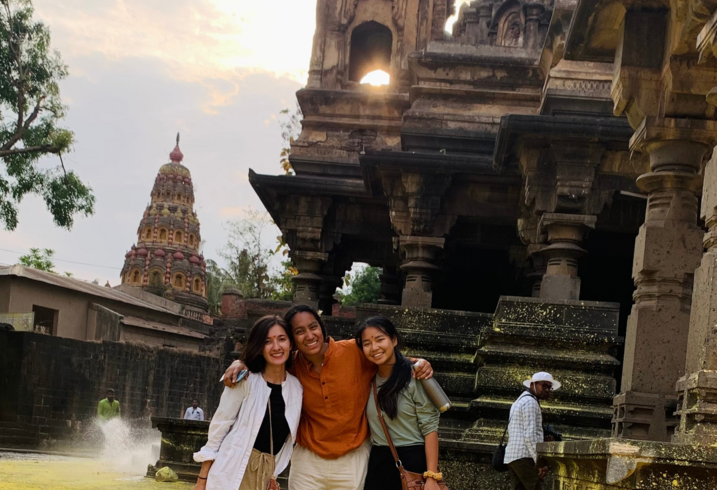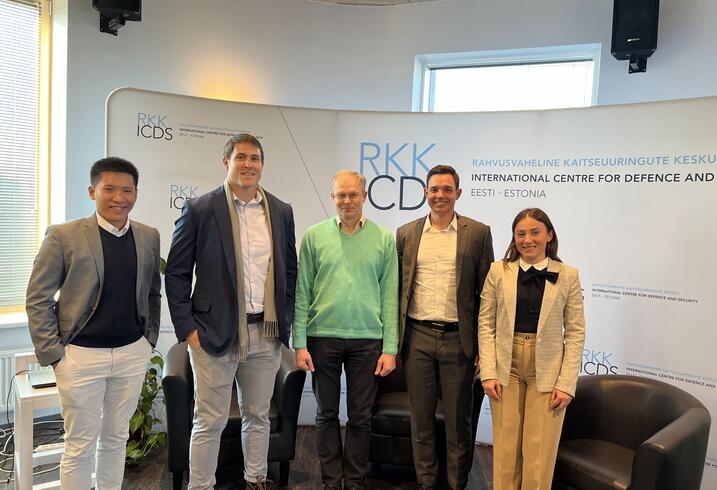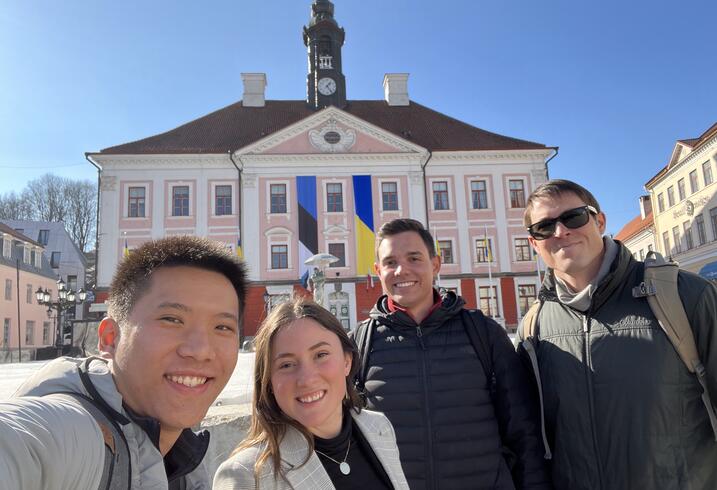Look South
This essay originally appeared in Korean on January 3 in Sindonga (New East Asia), Korea’s oldest monthly magazine (established 1931), as part of a monthly column, "Shin’s Reflections on Korea." Translated by Raymond Ha. A PDF version of this essay is also available to download.
Kanwal Rekhi is regarded as a pioneer of the Indian diaspora in Silicon Valley. After studying at IIT Bombay, Rekhi completed his graduate studies at Michigan Tech and moved to San Jose in 1982, where he co-founded Excelan. The company went public on Nasdaq in 1987. It was the first time that immigrants from India had created a company and succeeded in listing it on a U.S. stock exchange.[1]
Since having found success as an entrepreneur, Rekhi has sought to give back to the diaspora community and his home country. In 1992, he co-founded The IndUS Entrepreneurs (TiE), a non-profit that supports Indian entrepreneurs seeking to create startups. Rekhi explained to me that “there were many young Indians who wanted to start businesses, but they lacked the know-how and the networks.” TiE was intended to fill that gap. Rekhi also made a sizable donation to his alma mater, and he has advised the Indian government on policy issues. Moreover, he has supported the work of various universities in the United States, including Stanford.
The Story of India’s Diaspora
Rekhi belonged to the first generation of Indian immigrants to establish a foothold in Silicon Valley. Countless others, including Google CEO Sundar Pichai, have since followed in his footsteps. Upon graduating from the Indian Institutes of Technology (IITs), these individuals pursued further studies in the United States, where they successfully created startups or climbed the ladder to become C-level executives at major companies. They also maintain and cultivate close ties with their home country. Indian immigrants have been integral to Silicon Valley’s explosive growth, and they are now also contributing to India’s rise as a major economic power. India has now overtaken the United Kingdom, its former colonial ruler, with the fifth-largest GDP in the world.
The Indian diaspora has made its presence felt beyond the economic sector. Numerous graduates of the All India Institutes of Medical Sciences (AIIMS) practice medicine in the United States, and renowned scholars of Indian heritage serve on the faculty of elite American universities. For instance, Stanford selected Dr. Arun Majumdar to serve as the inaugural dean of the Doerr School of Sustainability, which opened its doors in the fall of 2022. Majumdar completed his undergraduate studies at IIT Bombay and obtained his PhD from UC Berkeley in 1989. His career has spanned the public and private sectors, and he now spearheads Stanford’s first new school in 70 years—an ambitious effort to “tackle urgent climate and sustainability challenges facing people and ecosystems worldwide.”[2] It would not be an exaggeration to say that the Indian diaspora now has greater influence and impact in Silicon Valley than the Chinese diaspora.
Moreover, India plays a central role in Washington’s Indo-Pacific Strategy, which has become the focal point of American foreign policy. New Delhi was the leader of the non-aligned movement during the Cold War, but it is now building closer ties with liberal democracies around the world. Unlike China, India is not locked in a strategic competition with the West. High English proficiency among Indians also facilitates relations and exchanges at all levels. It is also worth noting that there are now influential politicians of Indian heritage in major countries, including Kamala Harris in the United States and Rishi Sunak in the United Kingdom. India prides itself on being the most populous democracy in the world, and its stature in the international community is only likely to grow in the coming decades.
Despite these developments, Korean public sentiment toward India is largely negative. There is broad awareness of the legacy of historical figures like Mahatma Gandhi and cultural achievements such as the Taj Mahal. However, many Koreans still perceive India as a poor and chaotic country with rigid and obsolete customs, including the caste system. There are substantial cultural, social, and historical differences between Korea and India, but it is time for Korea to cast aside any prejudices and take a clear-eyed view of India. It is encouraging to see the Yoon Suk-Yeol administration stress in its recently announced Indo-Pacific Strategy that Korea “will advance [its] special strategic partnership with India, a leading regional partner with shared values.” The document also rightly notes the importance of “enhanced economic cooperation” between the two countries.[3]
In this context, it is especially vital for Korea to pay attention to the rise of the Indian diaspora in the United States and beyond. They are a force to be reckoned with in the global market. Unlike the state-driven development models of East Asia, India has pursued a market-driven policy since liberalizing its economy in 1991. The country’s overseas diaspora also plays a unique role in catalyzing economic growth. Korea should learn from the successes of India’s diaspora and build closer ties with such networks.
The Rise of Japan, China, and India
Japan was the undisputed leader of the Asia-Pacific in the 1980s, and China has taken on this mantle since the dawn of the 21st century. As China closes its doors amidst its intensifying strategic competition with the United States, India is emerging as the new regional leader. A close examination of the rise of these three countries reveals crucial differences. The contributions of the overseas diaspora to economic development, as noted above, are a distinguishing factor.
Let us begin with Japan. Relying on a well-educated workforce and meticulous training within companies, Japan built upon proprietary technology from the West to achieve incremental innovation. Sony’s worldwide success in consumer electronics, for example, can be attributed to sophisticated engineering and attention to detail in product design, not to significant advancements in the underlying technologies. Furthermore, Japan took great advantage of short-term overseas training programs to learn and utilize advanced technologies to further its own economy. This strategy enabled Japan to increase its economic heft without suffering a “brain drain,” to the point of challenging U.S. dominance over the global economy in the 1980s. There were, however, disputes with the United States over intellectual property rights (IPR).
Throughout this process, Japan’s diaspora did not play a visible role. Many Japanese abroad had already assimilated into their countries of residence, and the few that contributed only provided low-skilled labor. Japanese Americans, for example, have largely assimilated into American society despite the traumatic experience of forced internment during World War II. Contact with their home country was fairly limited. Some Japanese immigrants who settled in South America later returned to Japan, but most of these returnees were low-skilled laborers. After experiencing hardships and discrimination, however, they went back to South America once again after the 2008 global financial crisis.
China took a different path. The Chinese diaspora has a long history centered on Southeast Asia, and its role in enabling China’s reform and opening by providing much-needed capital is well known. In the 1980s, China adopted an “open door” policy and enabled large numbers of students to study abroad. It also proactively pursued a policy of “brain circulation” by inviting these students to return to China and contribute their talents to the country’s development. No country has sent more students abroad than China. With rapid economic growth in the 2000s, over 80% of these students returned. These individuals are called haigui (sea turtles) in China.[4] In Beijing’s Zhongguancun, China’s Silicon Valley, there are a plethora of programs and facilities tailored to haigui. They have not only spearheaded China’s technological innovation, but also made important contributions to the economy, scientific research, and higher education.
China’s pursuit of “brain circulation” has seen some success, but it also created friction with the United States. After studying and gaining work experience in the United States, Chinese talent returned home and directed their know-how toward accelerating China’s rise. However, U.S. authorities began to suspect that China’s talent policy was being misused for industrial espionage, especially in advanced technologies. For example, the Pentagon stated in 2018 that China’s Thousand Talents Program was a “toolkit for foreign technology acquisition.” U.S. intelligence officials added that the program was “a key part of multi-pronged efforts to transfer, replicate and eventually overtake U.S. military and commercial technology.”[5]
India has taken yet another path, although it resembles China’s experience in some respects. Like China, India experienced an enormous brain drain. It is second only to China in the number of overseas students. In terms of highly skilled emigration, it has seen the largest outflow of any country. Unlike Chinese talent, Indian immigrants tended to settle down in host countries, where they have built successful careers. During the 1980s, over a third (37.5%) of IIT Bombay graduates went abroad, and 82% of these individuals stayed abroad.[6] Between 2004 and 2016, 30% of grantees in Optional Practical Training (OPT), a temporary employment visa for F-1 students in the United States, were students from India.[7] Many of these students arrived in America after receiving a rigorous education in STEM or medicine in India. Their native fluency in English is also an important asset. Since India itself is extremely diverse in terms of religion, ethnicity, and culture, prior experience with diverse settings also gives Indian students an advantage for studying and living in America.
Even if Indian talent mostly stays abroad, they create “brain linkages” through extensive interaction with their home country. They bring young talent from India to overseas universities and companies, support start-up entrepreneurs in India, and connect global companies to India’s low-cost, high-quality workforce.
Immigrants from India make up the bulk of H-1B visa recipients in the United States. In fiscal year 2021, 74% consisted of Indian nationals.[8] Unicorn companies formed with diaspora support are appearing left and right in Bangalore, the hub for India’s high-tech industry. The total investment in Bangalore’s tech sector has jumped from $550 million in 2010 to $2 billion in 2017, spread across 6,000 start-ups.[9] This amount is projected to reach $30 billion by 2025.[10] Furthermore, unlike China, India is not currently engaged in disputes with the United States or other major economies over talent policy or IPR in advanced technologies.
Modi’s Visit to Silicon Valley
In 2015, India’s Prime Minister Narendra Modi spoke to a crowd of 20,000 at the Shark Tank in San Jose. Many in the diaspora community gathered for the occasion. Modi asserted that “what looks like brain drain is actually a brain deposit.”[11] He also met with leaders of the Indian diaspora during his visit, including Sundar Pichai (Google) and Satya Nadella (Microsoft), and secured support for the government’s “Digital India” initiative.[12] Naren Gupta, a member of India’s diaspora and the co-founder of Nexus Venture Partners, played an instrumental role in planning the visit. Modi’s tour of Silicon Valley encapsulated the power and influence of the Indian diaspora in America. It also revealed the strength of the brain linkages that the community had built with its home country.
The Indian diaspora is a force to be reckoned with in Silicon Valley. Of all engineering and tech start-ups formed in America by immigrants between 2006 and 2012, 33.2% were created by individuals of Indian origin.[13]This exceeds the total number of companies created by entrepreneurs from China, the United Kingdom, Canada, Germany, Israel, Russia, and Korea combined. Indian immigrants are also filling executive-level positions in major American IT companies. Those of Indian origin make up “just about 1% of the U.S. population and 6% of Silicon Valley’s workforce.”[14] However, they have an outsized impact. Immigrants from India to the United States tend to be highly educated, with over 70% possessing at least a bachelor’s degree.[15] This is markedly higher than the corresponding proportion for the U.S. population, which reached 37.9% in 2021.[16] Various factors help explain the Indian diaspora’s success in the United States: high levels of technical competence, a robust professional network, and strong communication skills based on native English fluency and familiarity with Western culture.
Moreover, Indian immigrants are very much willing to acquire citizenship in their host countries. In recent years, the number of Indian nationals who acquired U.S. citizenship through naturalization has been almost twice the number of Chinese nationals who were naturalized.[17] Indians reportedly do not have qualms about renouncing their Indian citizenship. Modi’s 2015 speech in San Jose, referenced above, clearly reflects how those in India view the overseas diaspora. Regardless of one’s citizenship or place of residence, there is a prevailing mentality of “once an Indian, always an Indian.” Leaders in India’s modern history, including Nehru and Gandhi, were also members of the diaspora. The tightly knit diaspora community gives rise to robust and mutually supportive professional networks, which helps elevate the presence of Indian immigrants in host countries. This is certainly the case in the United States.
Unlike China, India does not have a government-led policy to attract talent. Nevertheless, members of the overseas diaspora can temporarily return to India and engage in various activities with relative ease. There are also institutions that facilitate such endeavors. One is the legal status of “non-resident Indians” that is given to Indians who reside overseas for over 183 days in a given year. This status accords short-term diaspora visitors with legal and economic rights similar to that of resident citizens.
Since 2003, the Indian government has also officially recognized Non-Resident Indian Day (Pravasi Bharatiya Divas) on January 9, which commemorates the day of Gandhi’s return from South Africa to Mumbai in 1915. To mark the occasion, the Indian government presents an award to individuals in the diaspora community who have made significant achievements in their respective fields. Past recipients include Satya Nadella and Kalpana Chawla, an Indian American astronaut who posthumously received the award as the first person of Indian origin to go to space. By taking such steps, the Indian government promotes and strengthens solidarity between India and its diaspora, no matter where its members reside.
The New Argonauts
Members of the Indian diaspora are actively building ties to their home country. In 2021, they sent $87 billion in remittances to India. China’s diaspora came second with $53 billion.[18] This includes money earned by Indian immigrants in the United States, China, and other countries. Overseas Indians in the business sector not only invest in start-ups and real estate in India, but also give policy recommendations to their home government and provide support for higher education. They also organized charity fundraisers to assist COVID-19 response and recovery efforts, responding to the devastation that the pandemic wreaked across the country. According to my own analysis, 42% of 97 major Indian diaspora organizations in the United States maintain close ties with India. As a whole, they are even more active than Chinese diaspora organizations.
The IndUS Entrepreneurs (TiE), founded in Silicon Valley, is one of the best examples. It was established in 1992 with the goal of facilitating networking between entrepreneurs from South Asia, providing mentoring for the next generation, and incubating and investing in start-ups. As of 2020, TiE had 61 branches across 14 countries, with 20 offices in the United States and 23 in India, and boasted a membership of 15,000. To date, it has supported around 10,000 start-ups founded by entrepreneurs of Indian origin. The total valuation of these start-ups is approximately $200 billion. With offices in Mumbai, Bangalore, and Chennai, TiE has acted as a conduit for successful Indian businesspeople in Silicon Valley to interact with their home country. These individuals emphasized the importance of entrepreneurship to youth in India. They acted as role models, mentors, and investors at a time when there was little support to be found elsewhere. TiE continues to serve as a vital link between Silicon Valley and India.
The American Association of Physicians of Indian Origin (AAPI), founded in 1982, plays an essential role in creating brain linkages in the field of medicine. AAPI has 80,000 doctors and 40,000 students, residents, and fellows as members. It fosters closer ties between its members and pursues opportunities for cooperation with Indian medical schools. Since 2007, it has hosted an annual global healthcare summit in India. AAPI also operates 19 clinics across India and established a charitable foundation to provide medical relief. During the height of COVID-19, AAPI sent medical supplies and held various activities to help India overcome the pandemic. It is said that those in the diaspora community view such actions as a responsibility, not just as a charitable activity.
Furthermore, the Indian diaspora is heavily engaged in supporting higher education back home. Consider IIT Kharagpur, which opened its doors in 1951. Vinod Gupta graduated from this school, found success in the United States, and helped launch the Vinod Gupta School of Management at his alma mater in 1993. Arjun Malhotra, another IIT Kharagpur graduate, was involved in the creation of the G. S. Sanyal School of Telecommunications and the M. N. Faruqui Innovation Centre. In another example, leaders from the diaspora community joined forces in 2014 to establish Ashoka University, a private school modeled after American liberal arts colleges, a rarity in a higher education landscape dominated by public universities. Ashok Trivedi, one of the school’s founders, earned his bachelor’s and master’s at the University of Delhi before pursuing an MBA at Ohio University and subsequently co-founding IGATE, an IT services company. As these cases illustrate, leaders in the Indian diaspora community donate to their alma maters and even create new schools altogether. They also facilitate academic exchanges between prominent U.S. and Indian universities, including student exchange programs.
AnnaLee Saxenian, a professor at UC Berkeley’s School of Information, has referred to these immigrant entrepreneurs who maintain ties with their home country after building successful careers overseas as the “new argonauts.” Just like the Argonauts of Greek mythology who set sail across the Mediterranean in search of the Golden Fleece, these individuals have crossed oceans aboard their own Argo to seek success in the 21st century. Kanwal Rekhi emphasized to me that “the diaspora led India’s independence movement in the past, but now it is playing an important role for India’s economy.”
Will India Surpass China?
In a previous essay in this series, I argued that “China will not surpass the United States in our time.”[19] We could ask, in a similar fashion, whether India could overtake China in the future. While there are significant challenges on the road ahead, India could become a formidable competitor for China if current trends continue. At present, India lags far behind China in terms of overall national power. India has a much younger population, however, and its rate of economic growth will likely exceed China’s for the foreseeable future. India is the only country where the supply of highly skilled labor in the technology sector exceeds domestic demand. In addition to IITs and AIIMS, there are excellent engineering and medical schools across all regions of India. These institutions are an important source of talent for the global economy.
China is gradually closing its doors as the Sino-U.S. competition intensifies. In terms of its economy and trade relations, it is at risk of falling into a quagmire similar to Japan’s “Two Lost Decades.” Beijing must also contend with strong anti-China sentiment, especially among developed countries, and it must overcome the challenges that come with diplomatic isolation. India does not face the same geopolitical risks. As one of the four corners of the Quad, New Delhi is pursuing a foreign policy that includes various forms of cooperation with countries across the Indo-Pacific region in both economic and security issues. At the same time, the power and influence of the Indian diaspora only continues to grow. In an October 2022 op-ed on the subject, Tyler Cowen notes that Rishi Sunak is only one example of a much wider phenomenon. “It is now impossible to deny what has been evident for some while,” he says. “Indian talent is revolutionizing the Western world far more than had been expected 10 or 15 years ago.”[20]
To be sure, India faces a complex set of challenges at home. Poverty remains widespread, along with ethnic and religious conflicts. The Modi government has taken an authoritarian turn in its pursuit of Hindu nationalism, and there are serious governance challenges associated with corruption in both government and the private sector. Ajantha Subramanian, a professor of anthropology at Harvard, has pointed out that successful members of the Indian diaspora in Silicon Valley largely come from the upper castes. Some criticize these individuals for amplifying caste-based inequality overseas through their exclusive professional networks in ways that are no longer as prevalent in India. While accounting for such criticism and taking an honest look at India’s domestic issues, it would also be unwise for Korea to discount the importance of India and its diaspora in the coming decades.
To Become Asia’s Small Giant
A few years ago, I gave a lecture on Korea’s development at a leading university in New Delhi. I was deeply impressed by the passion and enthusiasm of the students who came to listen. There is growing interest in India about the story of Korea’s remarkable economic development, as well as K-pop and Korean dramas. Unfortunately, this has not always been reciprocated. In 2017, a bar in Itaewon, an area of Seoul famous for its multicultural atmosphere, drew controversy when it denied entry to a student from India.[21] In 2009, in another incident, an Indian research professor and a female Korean companion were harassed by a fellow bus passenger.[22] Such inexcusable acts of discrimination are ultimately rooted in prejudices and negative stereotypes about India in Korea.
I once had the opportunity to speak to Indian engineers who work in Korea. They told me that while they enjoyed working for Korean companies such as Samsung or SK, prejudice among Koreans toward India often made life difficult.[23] Building closer ties with India is a foreign policy imperative under the Yoon administration’s Indo-Pacific Strategy, but high-level policies alone will not be enough. It is vital for civil society to enhance mutual understanding between Korea and India by expanding cultural exchanges and strengthening people-to-people ties. The private sector also has an important role to play, as they can augment efforts by government-run Korean cultural centers and public entities such as the Korea Foundation.[24]
Indian talent could play an important role in Korea’s economic future. Korea will soon face significant labor shortages due to “a crisis on three fronts: a plummeting birth rate, an aging population, and a serious brain drain.”[25]On the other hand, India has a relatively young population and a large, highly skilled workforce. According to one estimate, “India is projected to have a skilled-labour surplus of around 245.3 million workers by 2030.”[26] There is also a natural synergy between the two economies. India excels in software, whereas Korea’s strength lies in hardware. If China provided opportunities for Korean manufacturers to export intermediate goods, India could provide the talent that Korea’s economy will increasingly rely on in the coming years.
Cowen argues that “India is by far the world’s most significant source of undiscovered and undervalued talent.” Anyone who is concerned about “the future of their own nation” in today’s world, he adds, “really should be focusing on India.”[27] Korea would do well to heed his advice.
While seeking ways to strengthen cooperation with India, Korea should also strive to build closer ties with the Indian diaspora and its networks. East Asian countries, including Korea, adopted a state-centered model of economic development. India took a different path, and its overseas diaspora has played a unique role in driving India’s economic growth. The ever-increasing influence of India’s new argonauts extends beyond Silicon Valley. Australia and Germany have sought to attract Indian talents and draw on their professional networks. The same goes for countries in the Middle East, including the United Arab Emirates. Korea could form closer partnerships with the extensive global networks of India’s diaspora community as it seeks to attract Indian talent and pursue new economic opportunities.
During the Cold War, Korea looked east toward the United States and Japan. As the Iron Curtain fell in the 1980s, Korea pursued Nordpolitik by normalizing ties with Moscow and Beijing. It is now time for Korea to look south. Even as Southeast Asia grows in importance, Korea must keep its eyes fixed on India. If Korea aims to become Asia’s small giant in this turbulent era, it would be wise for Seoul to use prevailing geopolitical currents to its favor.
[1]This essay draws on ongoing research by the author, which will be published in an upcoming book tentatively titled Talent Giants in the Asia-Pacific Century: A Comparative Analysis of Japan, Australia, China, and India.
[2] Amy Adams and Anneke Cole, “Stanford Doerr School of Sustainability, University’s First New School in 70 Years, Will Accelerate Solutions to Global Climate Crisis,” Stanford University, May 4, 2022, https://news.stanford.edu/2022/05/04/stanford-doerr-school-sustainability-universitys-first-new-school-70-years-will-accelerate-solutions-global-climate-crisis/.
[3] Republic of Korea Ministry of Foreign Affairs, Strategy for a Free, Peaceful, and Prosperous Indo-Pacific Region, December 28, 2022, 17, https://www.mofa.go.kr/eng/brd/m_5676/view.do?seq=322133.
[4] The terms “sea turtle” (海龟) and “return from overseas” (海归) are homophones for each other.
[5] Anthony Capaccio, “U.S. Faces ‘Unprecedented Threat’ from China on Tech Takeover,” Bloomberg, June 22, 2018, https://www.bloomberg.com/news/articles/2018-06-22/china-s-thousand-talents-called-key-in-seizing-u-s-expertise.
[6] S. P. Sukhatme and I. Mahadevan, Pilot Study on Magnitude and Nature of the Brain-Drain of Graduates of the Indian Institute of Technology, Bombay (Bombay: Indian Institute of Technology, 1987).
[7] Neil G. Ruiz and Abby Budiman, “Number of Foreign College Students Staying and Working in U.S. After Graduation Surges,” Pew Research Center, May 10, 2018, https://www.pewresearch.org/global/2018/05/10/number-of-foreign-college-students-staying-and-working-in-u-s-after-graduation-surges/.
[8] Lubna Kably, “Indians Bagged 3.01 Lakh H-1B Visas During Fiscal 2021–74% of the Total,” Times of India, April 14, 2022, https://timesofindia.indiatimes.com/world/us/indians-bagged-3-01-lakh-h-1b-visas-during-fiscal-2021-74-of-the-total/articleshow/90845244.cms.
[9] Indian Tech Start-Up Ecosystem: Approaching Escape Velocity (Noida: NASSCOM-Zinnov, 2018), 6; Manish Singh, “Indian Tech Startups Raised a Record$14.5B in 2019,” TechCrunch, December 30, 2019, https://techcrunch.com/2019/12/29/indian-tech-startups-funding-amount-2019/.
[10] “HNIs to Invest $30 Billion in Indian Tech Startups By 2025: Report,” Economic Times, June 17, 2021, https://economictimes.indiatimes.com/tech/startups/hnis-to-invest-30-billion-in-indian-tech-startups-by-2025-report/articleshow/83607846.cms.
[11] “Narendra Modi’s Speech at the Shark Tank, Silicon Valley As It Happened,” Wall Street Journal, September 27, 2015, https://www.wsj.com/articles/BL-IRTB-30506.
[12] Chidanand Rajghatta, “Silicon Valley Stars Sign on to PM Modi’s ‘Digital India’ Vision,” Times of India, September 27, 2015, https://timesofindia.indiatimes.com/tech-news/silicon-valley-stars-sign-on-to-pm-modis-digital-india-vision/articleshow/49129060.cms.
[13] Vivek Wadhwa, AnnaLee Saxenian, and F. Daniel Siciliano, Then and Now: America’s New Immigrant Entrepreneurs, Part VII (Ewing Marion Kauffman Foundation, 2012), 3, https://www.kauffman.org/wp-content/uploads/2019/12/Then_and_now_americas_new_immigrant_entrepreneurs.pdf.
[14] Nikhil Inamdar and Aparna Alluri, “Parag Agrawal: Why Indian-born CEOs dominate Silicon Valley,” BBC News, December 4, 2021, https://www.bbc.com/news/world-asia-india-59457015.
[15] Jens Manuel Krogstad and Jynnah Radford, “Education Levels of U.S. Immigrants Are on the Rise,” Pew Research Center, September 14, 2018, https://www.pewresearch.org/fact-tank/2018/09/14/education-levels-of-u-s-immigrants-are-on-the-rise/.
[16] United States Census Bureau, “Census Bureau Releases New Education Attainment Data,” February 24, 2022, https://www.census.gov/newsroom/press-releases/2022/educational-attainment.html.
[17] U.S. Department of Homeland Security, 2020 Yearbook of Immigration Statistics (Washington, D.C.: U.S. Department of Homeland Security, Office of Immigration Statistics, 2022), 53–54, https://www.dhs.gov/immigration-statistics/yearbook/2020.
[18] “With $87 Billion, India Top Remittance Recipient in 2021: UN Report,” Economic Times, July 20, 2022, https://economictimes.indiatimes.com/nri/invest/with-87-billion-india-top-remittance-recipient-in-2021-un-report/articleshow/93012012.cms.
[19] Gi-Wook Shin, “Walking a Tightrope,” Shorenstein APARC, November 16, 2022, https://aparc.fsi.stanford.edu/korea/news/walking-tightrope.
[20] Tyler Cowen, “Rishi Sunak Shows the Growing Influence of Indian Talent in the West,” Bloomberg, October 28, 2022, https://www.bloomberg.com/opinion/articles/2022-10-28/rishi-sunak-shows-growing-influence-of-indian-talent-in-west.
[21] Ock Hyun-ju, “Itaewon Bar Accused of Discriminating Against Indian,” Korean Herald, June 7, 2017, https://www.koreaherald.com/view.php?ud=20170607000796.
[22] Park Si-soo, “Indian Accuses Korean of Racial Discrimination,” Korea Times, August 3, 2009, http://www.koreatimes.co.kr/www/news/nation/2009/08/117_49537.html; Paul Kerry and Matthew Lamers, “Setting a Precedent on Racism,” Korea Herald, March 30, 2010, https://www.koreaherald.com/view.php?ud=20091106000044.
[23] Gi-Wook Shin and Joon Nak Choi, Global Talent: Skilled Labor as Social Capital in Korea (Stanford University Press, 2015).
[24] For more information about the Korea Foundation, see the organization’s “About Us” page at https://www.kf.or.kr/kfEng/cm/cntnts/cntntsView2.do?mi=2126.
[25] Gi-Wook Shin, “Demographic Headwinds,” Shorenstein APARC, December 15, 2022, https://aparc.fsi.stanford.edu/news/demographic-headwinds.
[26] “India to Have Talent Surplus of 245 Million Workers by 2030: Study,” Economic Times, May 7, 2018, https://economictimes.indiatimes.com/news/economy/indicators/india-to-have-talent-surplus-of-245-million-workers-by-2030-study/articleshow/64064096.cms.
[27] Cowen, “Rishi Sunak Shows the Growing Influence of Indian Talent in the West.”
DOWNLOAD A PDF VERSION OF THIS ESSAY
Read More
Opportunities for Korea-India Relations













